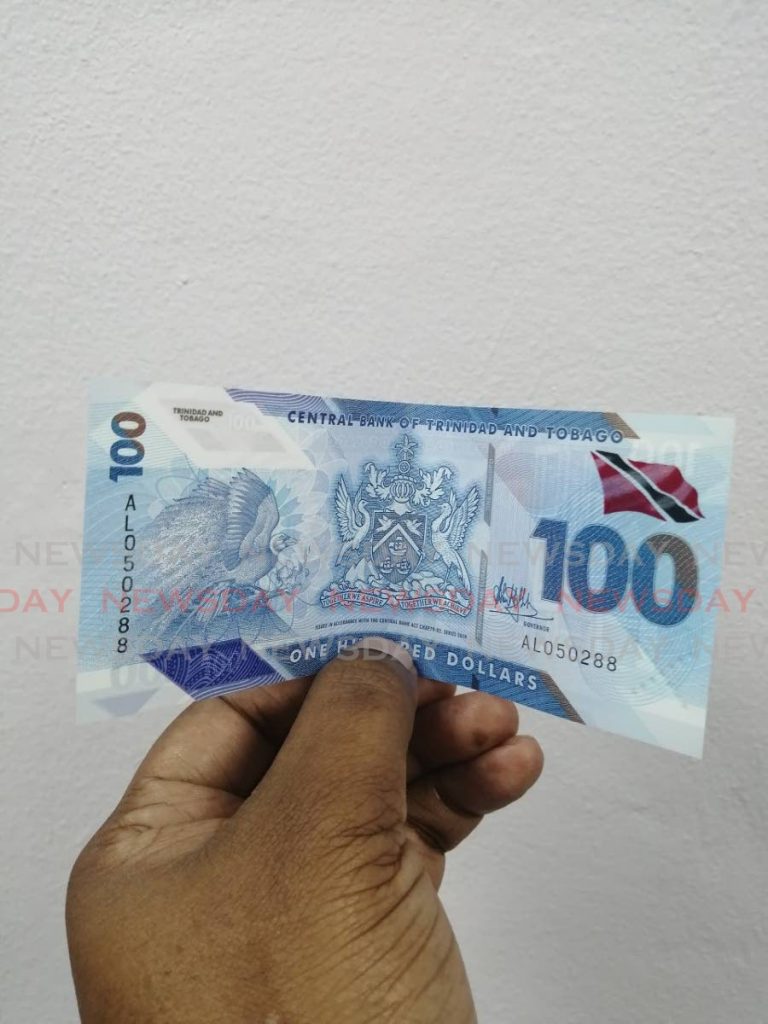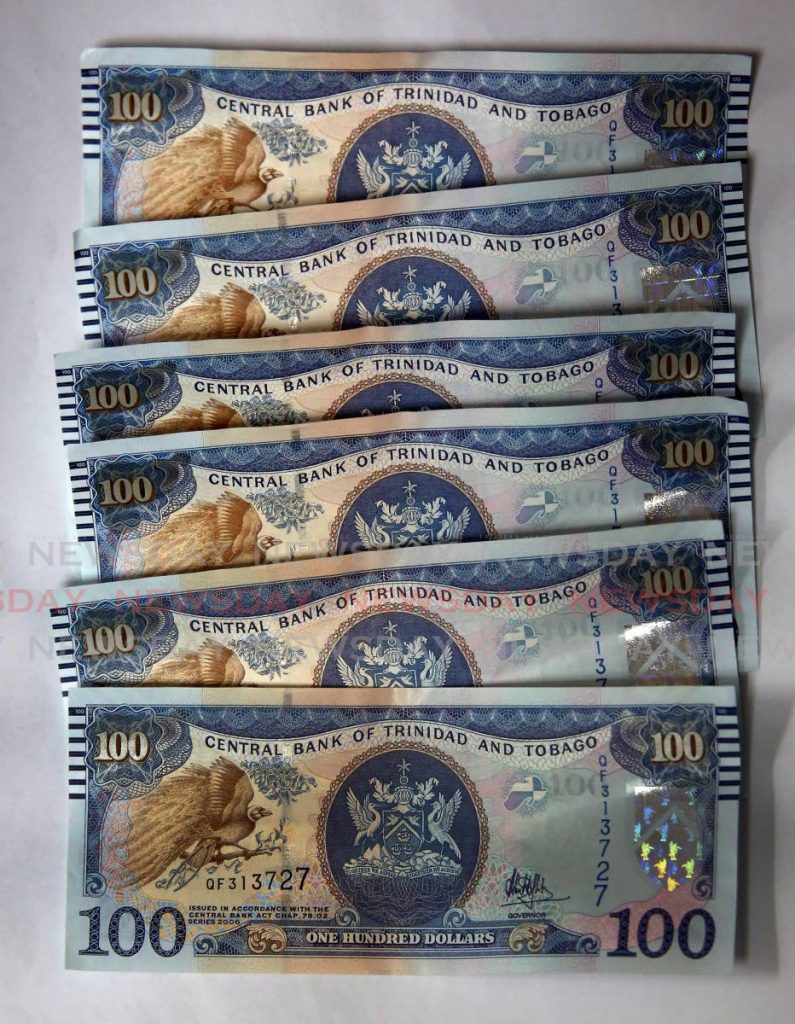$749m in dirty money

An estimated $749 million in "dirty money" got laundered as "clean currency" in the months leading up to Government and the Central Bank's changeover of $100 bills to the difficult-to-duplicate polymer notes.
The Financial Intelligence Unit (FIU) reports that 429 transactions, amounting to $749,024,557, is the highest recorded number of money laundering cases in the last three years, and occurred between July and September.
In an emailed response to questions from Sunday Newsday, acting head of FIU, Nigel Stoddard said there was an increase in money laundering activities in the third quarter of this year compared to the same period in 2018. Last year, there were 237 reports and 247 in 2017. The second highest figure was 300 reports in the last quarter of 2018; the figure was 179 in 2017.

For October to December, to date, there have been 216 reports. In the first quarter, January to March, there were 110 transactions, a decrease from 2018’s 275, and 175 in 2017. Between April to June, there were 264 reports, 288 in the same months last year, and 276 in 2017.
"With respect to suspicious transaction reports and suspicious activity reports being reported to the FIU, the quarter April-June for the last three years has shown the highest submissions. The spike in reports filed with the FIU for the quarter July-September 2019 is due to the introduction of FIUConnect, a secure electronic e-filing system," Stoddard said in his reply.
Between 2010 to 2018, there were more than $12 billion ($12,099,538,322) completed money laundering transactions. The FIU calculated there were $14,619,651,019 in "attempted transactions" from 2013. The highest ever record of attempted transactions was an estimated $13 billion in 2017 and more than $8 billion in completed money laundering transactions that year.
Earlier this month, National Security Minister Stuart Young said the polymer $100 bill which will replace the paper notes, will help fight money laundering and other illicit activities. He added that the plan to change was on a need to know basis and was ongoing for several months.
On Thursday, Young said one person, who claimed to be a barber, showed up at a bank with $1 million to exchange the old notes for the polymer ones. He added that since the new notes were made available several unusual transactions were flagged. He stressed there are law enforcement officers who are part of the process and are stationed where they need to be based on security intelligence. Two commercial banks have released $270 million collectively since the release of the polymer bills on Tuesday. The Central Bank began transferring polymer notes to banks on Monday. TT already has $50 polymer bills and there are plans to demonetise the $1, $5, $10 and $20 within the next year.
During the debate to amend the Miscellaneous Provisions (Proceeds of Crime and Central Bank) Bill 2019, Finance Minister Colm Imbert said the demonetising of the old $100 bills for the polymer notes will increase this country’s credibility in the eyes of international financial organisations.
“This is actually a big win for T with FATF (Financial Action Task Force) and Global Forum because it strikes at the heart of the underground economy – at tax evaders, at drug traffickers, at money lenders – who are the primary concerns of the Financial Action Task Force, the EU, and the Global Forum. So this is a big win, if it works, and we expect it to because we planned it very well.”
Asked if the FIU was consulted throughout the process leading up to the December 5 announcement to switch to the polymer notes by the end of the year, Stoddard said: “The FIU would have been consulted at the appropriate time in this process.”
He said the introduction of the new notes would help money laundering and financial crime investigations.
“The FIU sees this transition period for the exchange of the paper $100 notes to the polymer as greatly assisting it in identifying suspected money laundering and other criminal conduct. Persons and businesses now have to bring the old notes into the financial system and give an account for the source.”
He added that the polymer notes will also assist the police in detecting counterfeit bills as they are more difficult to forge.

Stoddard said his unit is well equipped to identify money laundering trends and attempts at it, however, the continued training of staff in financial intelligence analysis to identify new and emerging trends is “imperative”. Such trends, he said, include the use of virtual assets to launder money or finance terrorism. He called for the introduction of a cash threshold reporting system and making it an offence to structure deposits below that threshold in an attempt to avoid detection.
Information on the status of investigations, and any arrests, was not available.


Comments
"$749m in dirty money"